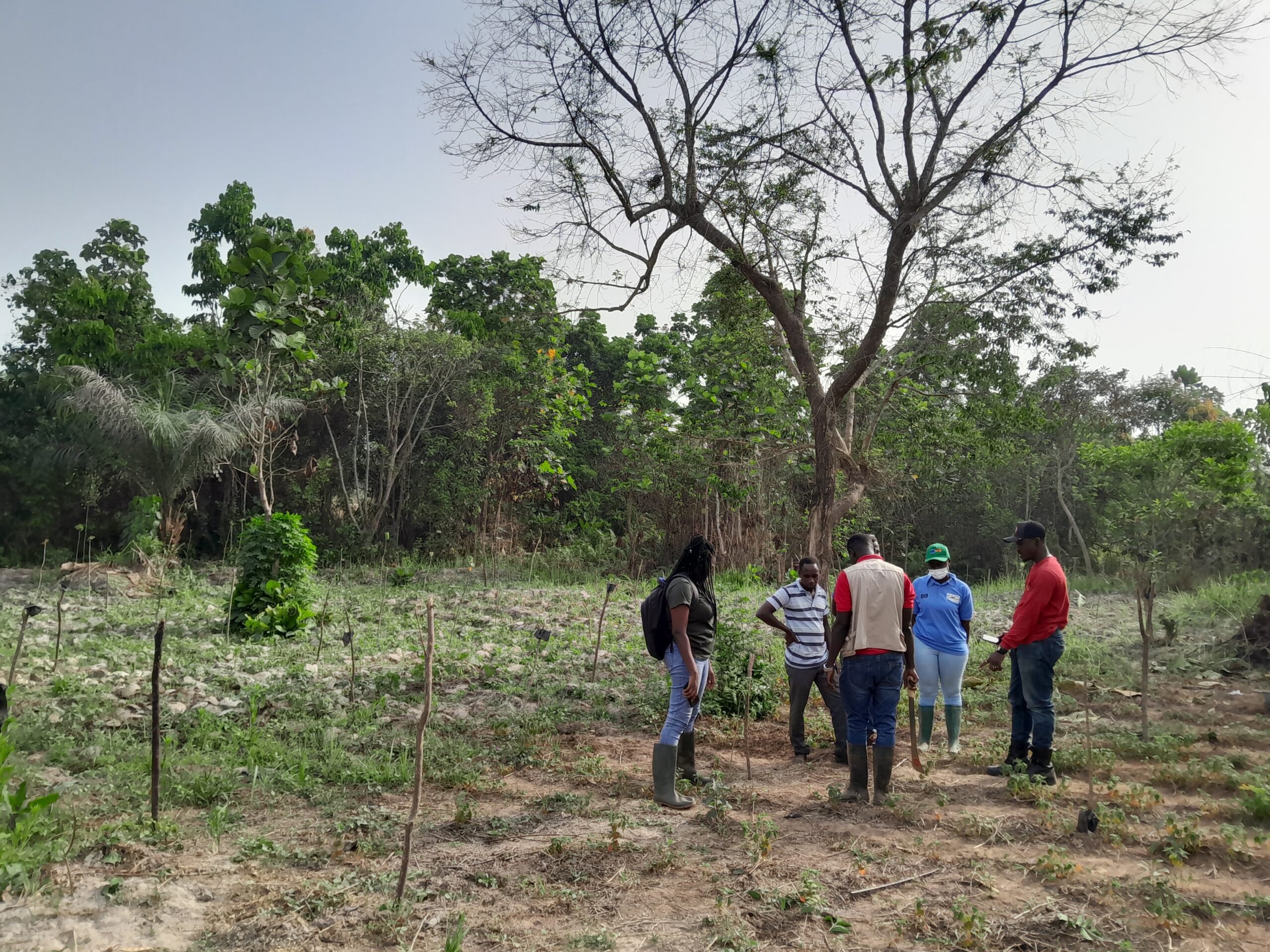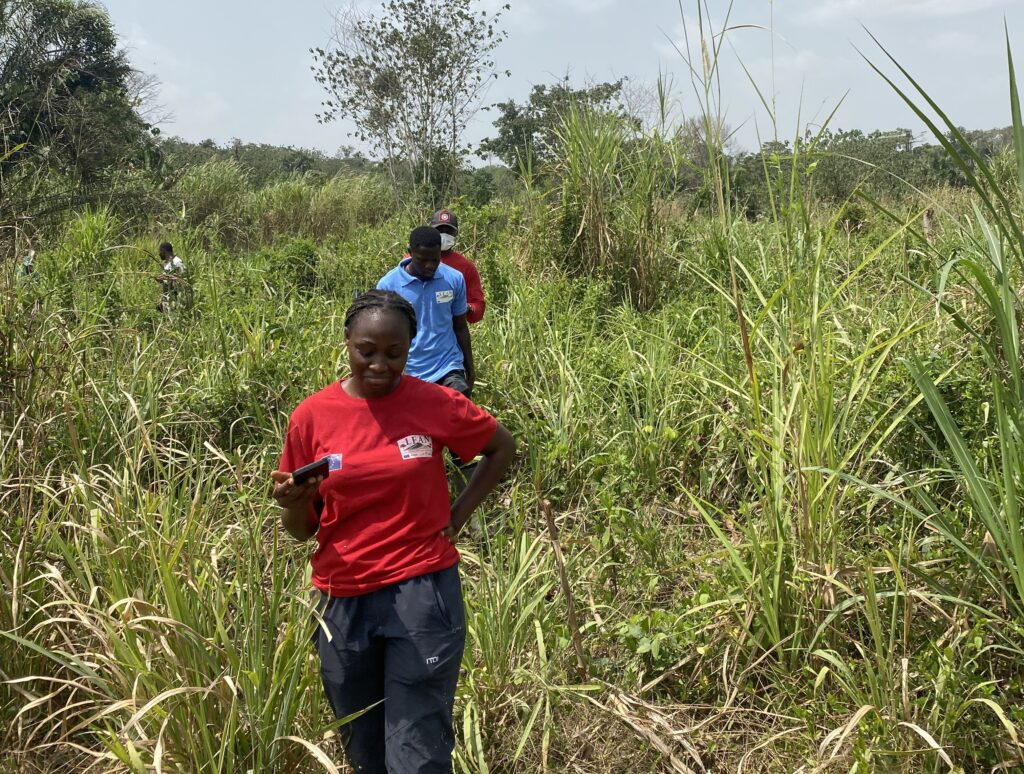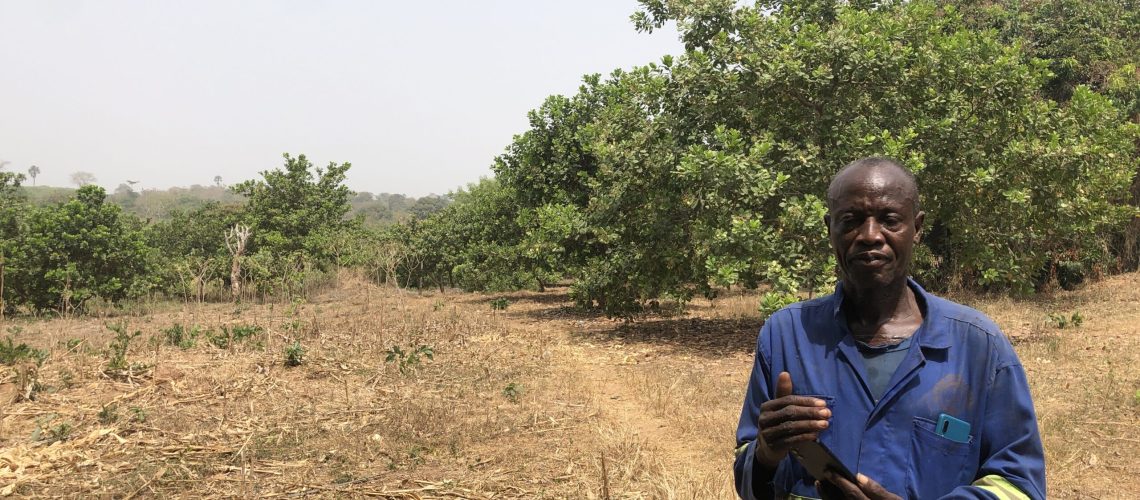In a world increasingly shaped by the adverse impact of climate change, the call to plant trees and conserve biodiversity reverberates louder than ever. Yet, this noble endeavour demands more than just a green thumb—it requires a deliberate effort of monitoring and safeguarding farmers’ rights to own the trees they plant and nurture.
EcoCare Ghana in its efforts to restore degraded landscapes and empower smallholder farmers to embrace agroforestry practices has trained volunteers with digital technology tools for mapping, to meet traceability requirements and for monitoring.
Over the years, EcoCare Ghana has embarked on two integrated landscape restoration projects in the transition landscape of Ghana. These projects are the European Union-funded Landscape and Environmental Agility across the Nation (LEAN) project and the Terrafund for AFR100-funded Community-led Restoration project.

SOME VOLUNTEERS DURING THE MAPPING TRAINING EXERCISE ON A FARM
To incorporate the use of digital tools and innovation for monitoring, EcoCare Ghana enlisted and trained 28 young volunteers and 4 LEAN Landscape Management Board (LMB) members, to use digital technology for farm mapping and monitoring as well as data collection on tree growth and biodiversity. These individuals were equipped with smartphones with GPS configurations and geotagging softwares , for mapping restoration sites, monitoring tree locations and creating polygons to accurately measure farm sizes.
Albert Baah Essuman, the Monitoring and Evaluation Officer of EcoCare Ghana, stressed the importance of adopting technology for data collection, monitoring and evaluation. In his words, “Technology ensures a seamless tapestry of connectivity, linking our landscape restoration initiatives to both national and international carbon data collection platforms. It also enhances accessibility of data, helps in traceability and verification by national bodies and donors therefore promoting transparency’’.
Mr. Joseph Badu, a trained volunteer from Kyebi in the Offinso Municipal Assembly proclaimed, “Now I know the precise dimensions of my farmland, and I can digitally monitor my planted trees, even from afar. I’m also assisting my neighbours in mapping their farmlands to prevent conflicts over boundaries.”
During the training, Miss Vassileva Alorvor, the Campaigner of EcoCare Ghana, emphasized the transformative potential of technology. For her, it’s not merely a skill set acquired; but a gateway to employment and a commitment to sustained monitoring beyond the project timeline.

THE CAMPAIGNER OF ECOCARE GHANA LEADING THE MAPPING EXERCISE
Madam Margaret Opoku of Darso, a smallholder farmer, found solace. Her woodlots, now artfully mapped, became a testament of her empowerment” I now accurately know I own a 10-acre woodlot made up of indigenous tree species which will mitigate climate change, restore biodiversity and promote the general well-being of people and planet’’ .
In 2023, EcoCare Ghana through the LEAN and community-led restoration projects restored about 600 hectares in the selected communities in 3 districts in the transition landscape.
EcoCare Ghana hopes that digital technologies will be embraced by all stakeholders to consolidate national re-greening efforts towards the achievement of Ghana’s Nationally Determined Contributions (NDCs)[v1] . This data will be instrumental in tracking and monitoring carbon emission reduction targets, while meeting EUDR traceability compliance and enhancing farmers’ future participation in carbon trading.






